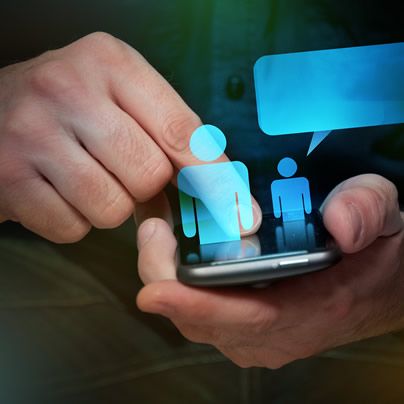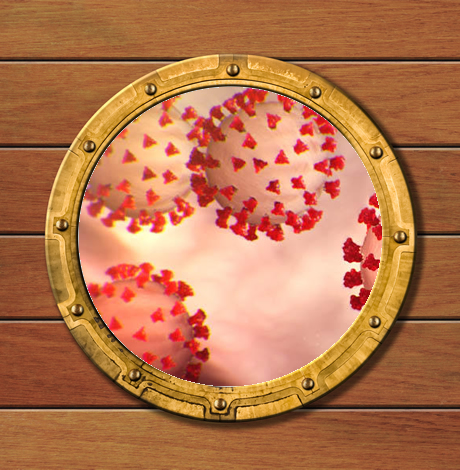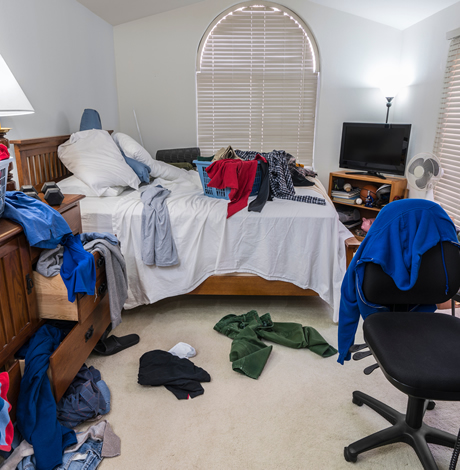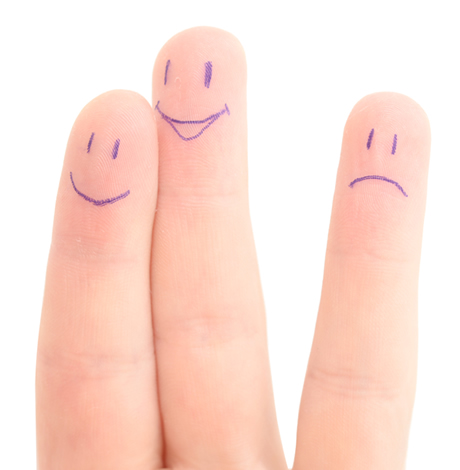Arts & Entertainment
Hook-up addiction?
Apps and sex sites offer quick thrills, but could keep you from the LTR you seek

Dear Michael,
I seem to be spending more and more time on my phone lately, looking for hookups, but I’m having some doubts that this is all good. Pro: I’m meeting lots of hot guys and having a lot of hot sex. Con: I still am not in a relationship and want to have a boyfriend. Pro: All my friends are on the same apps and we have a lot of fun comparing notes. Con: We don’t seem to talk about much else. Pro: It gives me a rush and feels fun. Con: I think it’s eating up all my time. Pro: It’s fun to be able to meet guys quickly, wherever I am. Con: I almost had an accident while looking for guys on my phone while driving through North Carolina.
What do you think?
Possibly Screwed by my App
Dear Screwed,
Hooking up with people and the hunt for hookups, can feel great. Our brains produce chemicals that give us intense feelings of pleasure not just when we have sex, but also as we move toward getting naked: during foreplay, while we’re flirting, and — if we’re using an app to look for potential partners — when we take the very first step of launching the app. So, as you start scanning all those alluring possibilities on your phone, you are triggering a neurochemical response in your brain that can create an awesome high.
The problem is, because simply getting on the app makes you feel good, you are likely to get on it more and more often. And because actually finding hookups makes you feel good, you can easily get obsessed with chasing this particular high.
If it sounds like I’m using the language of addiction: You’re right, I am.
Now, let’s look at your situation from a slightly different perspective. The road to hooking up can be a speedy route to feeling attractive and desired. The validation we get, from both hookups and potential hookups, can seem like a powerful self-esteem boost. Typically, this leads us to pursue more and more hookups. Gay men, who usually have a core experience of feeling different and defective, are highly susceptible to this sort of fix.
Some problems with this: The boost is fleeting, because external praise for our surface attributes doesn’t really change how we feel about ourselves and we are likely to spend more and more time chasing short-lived validation from people we hardly know. If you don’t actually feel good about endlessly pursuing hookups, then hanging out with your app will ultimately lower your self-esteem. This is the opposite of what you’re looking for — and what you feel like you’re getting — when you launch the app.
The upshot is, you may be addicted to an experience that is keeping you hunting for hookups, even though you say you want a relationship. And because the particular high of intense excitement that you are chasing is a very different experience from the intimacy and commitment of a relationship, you are conditioning your brain to crave hookups, and their pursuit, rather than something more long-term.
If you want to make a change, you would benefit tremendously from strong support, because it isn’t easy to stop a behavior with such seductive and pleasurable payoffs, even if there are also negative consequences. You report that all your friends are similarly engaged, which makes it difficult to do something different. Consider looking for an additional social network (live rather than virtual) and perhaps a therapist knowledgeable about this issue to help you broaden your sources of pleasure, stimulation and connection.
Michael Radkowsky, Psy.D. is a licensed psychologist who works with gay couples and individuals in D.C. He can be found online at personalgrowthzone.com. All identifying information in the questions has been changed for reasons of confidentiality. Have a question? Send it to [email protected]

Team DC, the umbrella organization for LGBTQ-friendly sports teams and leagues in the D.C. area, held its annual Night of Champions Awards Gala on Saturday, April 20 at the Hilton National Mall. The organization gave out scholarships to area LGBTQ student athletes as well as awards to the Different Drummers, Kelly Laczko of Duplex Diner, Stacy Smith of the Edmund Burke School, Bryan Frank of Triout, JC Adams of DCG Basketball and the DC Gay Flag Football League.
(Washington Blade photos by Michael Key)




















The 2024 National Cannabis Festival was held at the Fields at RFK Stadium on April 19-20.
(Washington Blade photos by Michael Key)
















Covering the @NatlCannaFest at RFK Stadium for @WashBlade . Stop by the LGBTQ+ booth and pick up a paper if you are here. pic.twitter.com/is7hnsaPns
— Michael Patrick Key (@MichaelKeyWB) April 20, 2024
Theater
‘Amm(i)gone’ explores family, queerness, and faith
A ‘fully autobiographical’ work from out artist Adil Mansoor

‘Amm(i)gone’
Thorough May 12
Woolly Mammoth Theatre
641 D St., N.W.
$60-$70
Woollymammoth.net
“Fully and utterly autobiographical.” That’s how Adil Mansoor describes “Amm(i)gone,” his one-man work currently playing at Woolly Mammoth Theatre.
Both created and performed by out artist Mansoor, it’s his story about inviting his Pakistani mother to translate Sophocles’s Greek tragedy “Antigone” into Urdu. Throughout the journey, there’s an exploration of family, queerness, and faith,as well as references to teachings from the Quran, and audio conversations with his Muslim mother.
Mansoor, 38, grew up in the suburbs of Chicago and is now based in Pittsburgh where he’s a busy theater maker. He’s also the founding member of Pittsburgh’s Hatch Arts Collective and the former artistic director of Dreams of Hope, an LGBTQ youth arts organization.
WASHINGTON BLADE: What spurred you to create “Amm(i)gone”?
ADIL MANSOOR: I was reading a translation of “Antigone” a few years back and found myself emotionally overwhelmed. A Theban princess buries her brother knowing it will cost her, her own life. It’s about a person for whom all aspirations are in the afterlife. And what does that do to the living when all of your hopes and dreams have to be reserved for the afterlife?
I found grant funding to pay my mom to do the translation. I wanted to engage in learning. I wanted to share theater but especially this ancient tragedy. My mother appreciated the characters were struggling between loving one another and their beliefs.
BLADE: Are you more director than actor?
MANSOOR: I’m primarily a director with an MFA in directing from Carnegie Mellon. I wrote, directed, and performed in this show, and had been working on it for four years. I’ve done different versions including Zoom. Woolly’s is a new production with the same team who’ve been involved since the beginning.
I love solo performance. I’ve produced and now teach solo performance and believe in its power. And I definitely lean toward “performance” and I haven’t “acted” since I was in college. I feel good on stage. I was a tour guide and do a lot of public speaking. I enjoy the attention.
BLADE: Describe your mom.
MANSOOR: My mom is a wonderfully devout Muslim, single mother, social worker who discovered my queerness on Google. And she prays for me.
She and I are similar, the way we look at things, the way we laugh. But different too. And those are among the questions I ask in this show. Our relationship is both beautiful and complicated.
BLADE: So, you weren’t exactly hiding your sexuality?
MANSOOR: In my mid-20s, I took time to talk with friends about our being queer with relation to our careers. My sexuality is essential to the work. As the artistic director at Dreams of Hope, part of the work was to model what it means to be public. If I’m in a room with queer and trans teenagers, part of what I’m doing is modeling queer adulthood. The way they see me in the world is part of what I’m putting out there. And I want that to be expansive and full.
So much of my work involves fundraising and being a face in schools. Being out is about making safe space for queer young folks.
BLADE: Have you encountered much Islamophobia?
MANSOOR: When 9/11 happened, I was a sophomore in high school, so yes. I faced a lot then and now. I’ve been egged on the street in the last four months. I see it in the classroom. It shows up in all sorts of ways.
BLADE: What prompted you to lead your creative life in Pittsburgh?
MANSOOR: I’ve been here for 14 years. I breathe with ease in Pittsburgh. The hills and the valleys and the rust of the city do something to me. It’s beautiful, it’ affordable, and there is support for local artists. There’s a lot of opportunity.
Still, the plan was to move to New York in September of 2020 but that was cancelled. Then the pandemic showed me that I could live in Pittsburgh and still have a nationally viable career.
BLADE: What are you trying to achieve with “Amm(i)gone”?
MANSOOR: What I’m sharing in the show is so very specific but I hear people from other backgrounds say I totally see my mom in that. My partner is Catholic and we share so much in relation to this.
I hope the work is embracing the fullness of queerness and how means so many things. And I hope the show makes audiences want to call their parents or squeeze their partners.
-

 District of Columbia5 days ago
District of Columbia5 days agoNew D.C. LGBTQ+ bar Crush set to open April 19
-

 District of Columbia5 days ago
District of Columbia5 days agoReenactment of first gay rights picket at White House draws interest of tourists
-

 Arizona5 days ago
Arizona5 days agoAriz. governor vetoes anti-transgender, Ten Commandments bill
-

 South America3 days ago
South America3 days agoDaniel Zamudio murderer’s parole request denied










